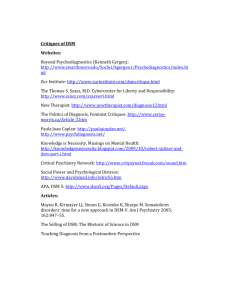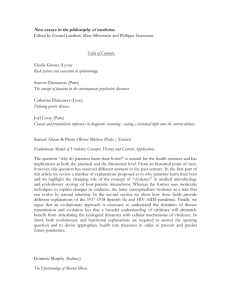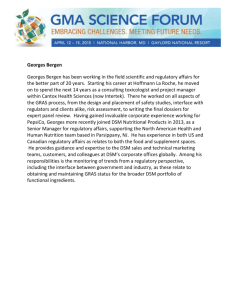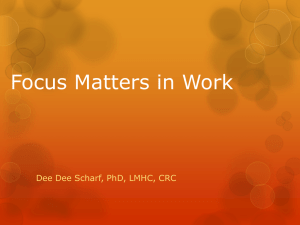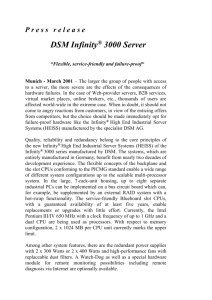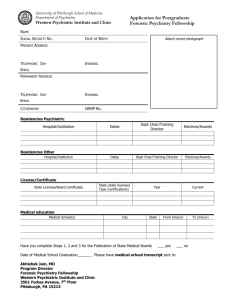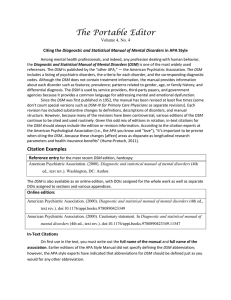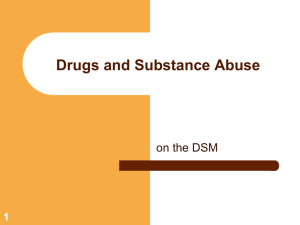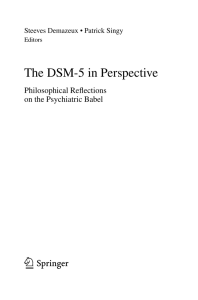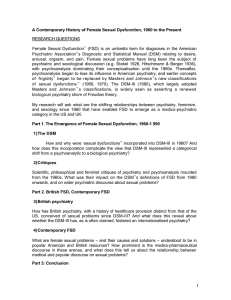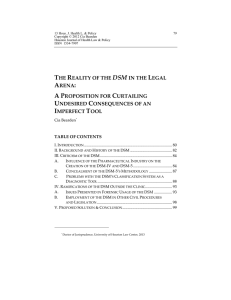The Forensic Implications of the DSM-V's Pedohebephilia - B4U-ACT
advertisement
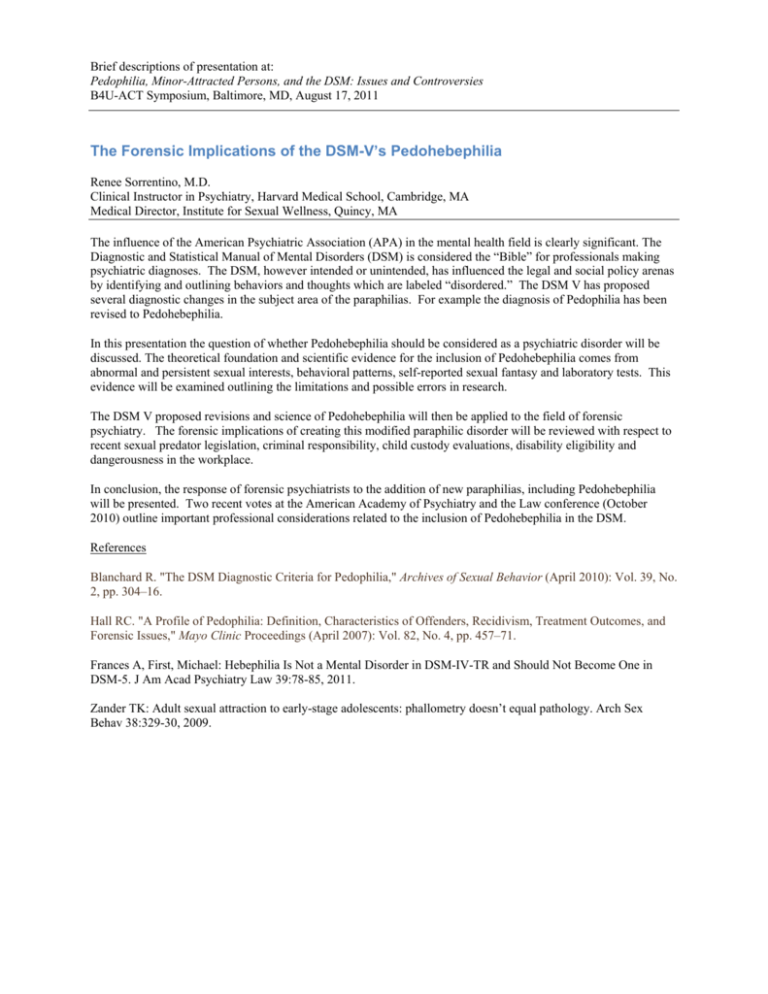
Brief descriptions of presentation at: Pedophilia, Minor-Attracted Persons, and the DSM: Issues and Controversies B4U-ACT Symposium, Baltimore, MD, August 17, 2011 The Forensic Implications of the DSM-V’s Pedohebephilia Renee Sorrentino, M.D. Clinical Instructor in Psychiatry, Harvard Medical School, Cambridge, MA Medical Director, Institute for Sexual Wellness, Quincy, MA The influence of the American Psychiatric Association (APA) in the mental health field is clearly significant. The Diagnostic and Statistical Manual of Mental Disorders (DSM) is considered the “Bible” for professionals making psychiatric diagnoses. The DSM, however intended or unintended, has influenced the legal and social policy arenas by identifying and outlining behaviors and thoughts which are labeled “disordered.” The DSM V has proposed several diagnostic changes in the subject area of the paraphilias. For example the diagnosis of Pedophilia has been revised to Pedohebephilia. In this presentation the question of whether Pedohebephilia should be considered as a psychiatric disorder will be discussed. The theoretical foundation and scientific evidence for the inclusion of Pedohebephilia comes from abnormal and persistent sexual interests, behavioral patterns, self-reported sexual fantasy and laboratory tests. This evidence will be examined outlining the limitations and possible errors in research. The DSM V proposed revisions and science of Pedohebephilia will then be applied to the field of forensic psychiatry. The forensic implications of creating this modified paraphilic disorder will be reviewed with respect to recent sexual predator legislation, criminal responsibility, child custody evaluations, disability eligibility and dangerousness in the workplace. In conclusion, the response of forensic psychiatrists to the addition of new paraphilias, including Pedohebephilia will be presented. Two recent votes at the American Academy of Psychiatry and the Law conference (October 2010) outline important professional considerations related to the inclusion of Pedohebephilia in the DSM. References Blanchard R. "The DSM Diagnostic Criteria for Pedophilia," Archives of Sexual Behavior (April 2010): Vol. 39, No. 2, pp. 304–16. Hall RC. "A Profile of Pedophilia: Definition, Characteristics of Offenders, Recidivism, Treatment Outcomes, and Forensic Issues," Mayo Clinic Proceedings (April 2007): Vol. 82, No. 4, pp. 457–71. Frances A, First, Michael: Hebephilia Is Not a Mental Disorder in DSM-IV-TR and Should Not Become One in DSM-5. J Am Acad Psychiatry Law 39:78-85, 2011. Zander TK: Adult sexual attraction to early-stage adolescents: phallometry doesn’t equal pathology. Arch Sex Behav 38:329-30, 2009.
